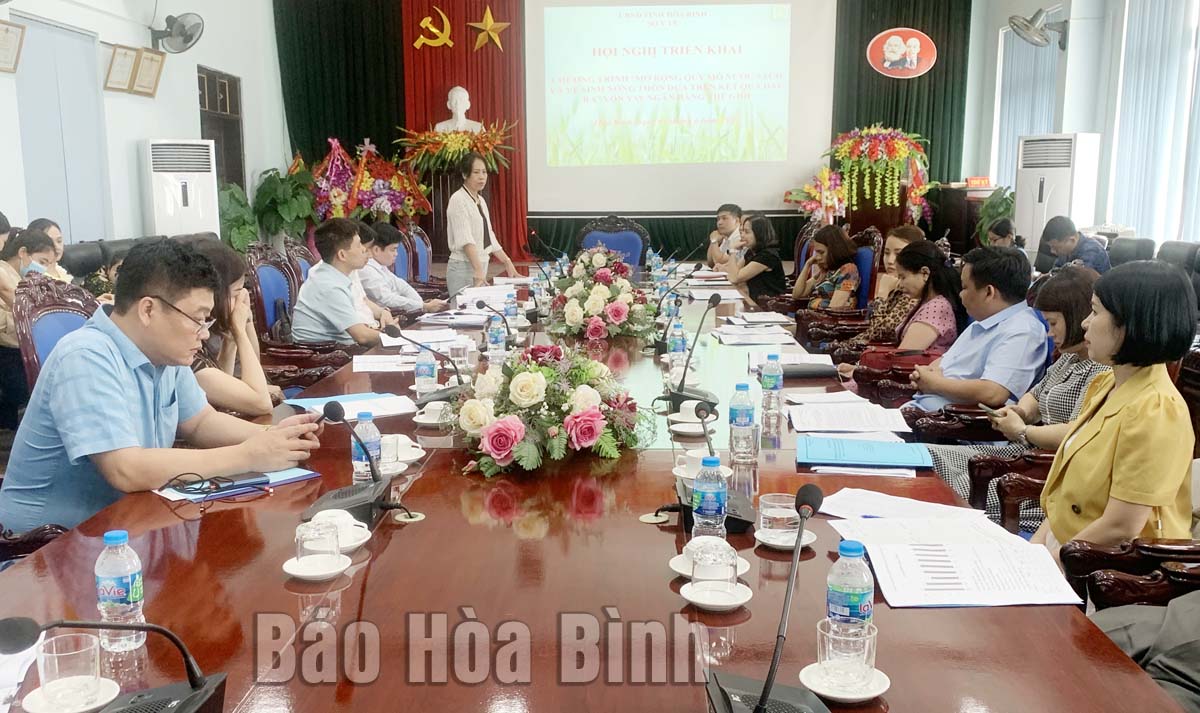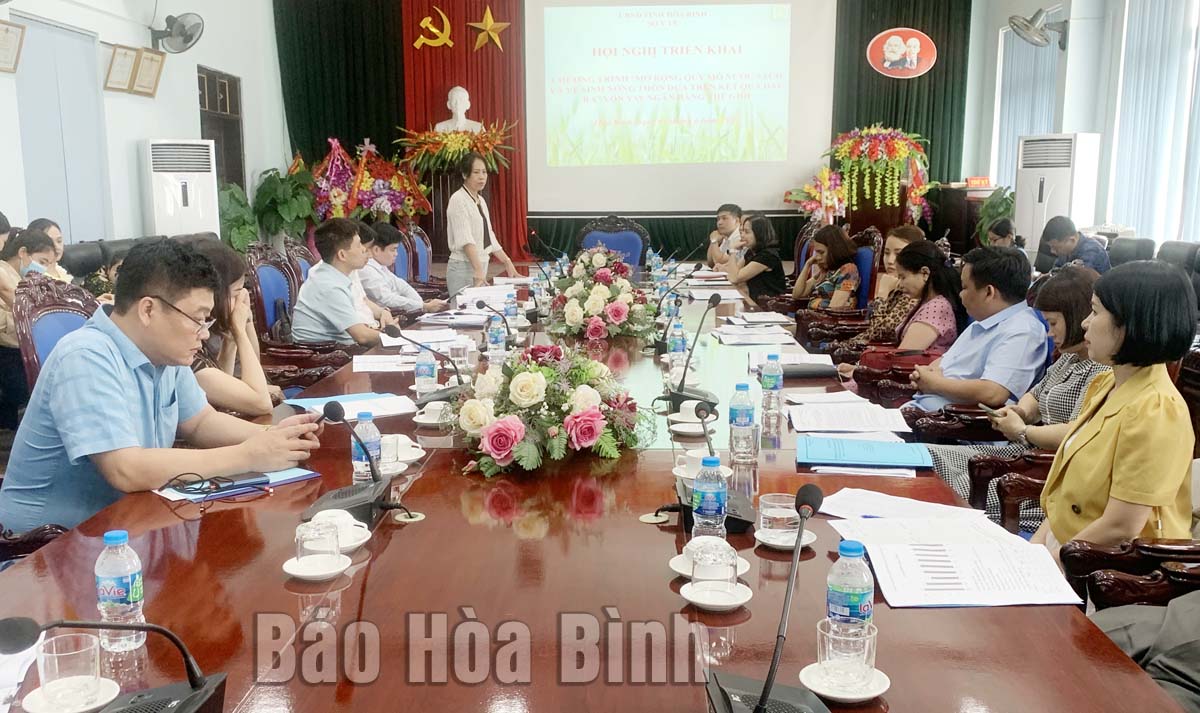



The delegates are discussing at the conference.
The program is implemented in 21 provinces in the Northern mountainous region, the Central Highlands and the Southern Central region, including Hoa Binh province. The programm was conducted in the period of 2016 - 2020, however, it has been allowed to last until the end of December 2022 by the Governemnt due to the impact of Covid-19 pandemics. The program focuses on providing the communication activities to change the behavior, developing the sanitation market and building the infrastructure to support the behavior change, support the sustainable service development and build the institutional capacity for the service delivery. In Hoa Binh province, the program has been implemented since 2018, with the goal of 60 communes achieving the commune-wide sanitation, 30 communes achieving the sustainable commune-wide sanitation, 85 water works and communal health stations' latrines being renovated and newly built. Up btill now, 85 water works and the medical sanitary latrines have been built and renovated; 32 out of the 60 communes have achieved the commune-wide sanitation, 11 out of the 30 communes have achieved the sustainable commune-wide sanitation.
The conference has focused on discussing and analyzing the difficulties and obstacles in the actual implementation process in the locality, especially in the remote and mountainous communes and areas with difficult economic conditions in Kim Boi, Da Bac, Cao Phong districts, which have the low rate of hygienic latrines for the households. Thereby, it has been contributing to the completion of the plan and roadmap so that all households have and use the hygienic latrines by 2030 according to the Government's commitment to the international community.